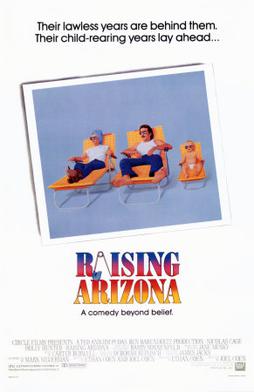 |
| Sam Rockwell, Frances McDormand, and Zeljko Ivanek in Three Billboards Outside Ebbing, Missouri |
Mildred Hayes: Frances McDormand
Bill Willoughby: Woody Harrelson
Jason Dixon: Sam Rockwell
Anne Willoughby: Abbie Cornish
Robbie Hayes: Lucas Hedges
Desk Sergeant: Zeljko Ivanek
Red Welby: Caleb Landry Jones
Chief Abercrombie: Clarke Peters
Charlie Hayes: John Hawkes
James: Peter Dinklage
Momma Dixon: Sandy Martin
Director: Martin McDonagh
Screenplay: Martin McDonagh
Cinematography: Ben Davis
Production design: Inbal Weinberg
Film editing: Jon Gregory
Music: Carter Burwell
Frances McDormand and Sam Rockwell got the Oscars they deserved: Mildred Hayes's sour persistence and Jason Dixon's stupidity make them just short of caricatures; they needed the nuances provided by McDormand and Rockwell to come to any semblance of life. But the performer who gives Martin McDonagh's
Three Billboards Outside Ebbing, Missouri the grounding it needs is Woody Harrelson, one of those actors, like John Goodman or the late Bill Paxton, whose presence in the cast could make any movie just a little bit better. Chief Willoughby, the butt of Mildred's billboards, is not the dumb small-town police chief that we (and of course Mildred) first believe him to be. He's a more complex figure, who even achieves a measure of tragic grandeur with his suicide, carefully leaving a note on the hood he puts over his face to tell his wife not to remove it but to leave that to the police, and then leaving behind notes for his nemesis, Mildred, and for Dixon ("I'm dead now, sorry about that") that set the remainder of the film in motion. He gives McDonagh's acerbic screenplay a bit of warmth, though maybe not enough: I found
Three Billboards a less satisfying film than the wonderful
In Bruges (2008). But like that film, it has a fascinating texture provided by a supporting cast full of skillful players: Lucas Hedges as Mildred's somewhat exasperated son; Zeljko Ivanek as the desk sergeant trying to bring order out of the office chaos ("You do not allow a member of the public to call you a fuckhead in the station house"); Caleb Landry Jones as the advertising manager who gets the brunt of the town's protests and is tossed out of a window by Dixon; Clarke Peters as the level-headed new chief who manages to restore order after Willoughby's death; John Hawkes as Mildred's hair-trigger ex-husband encumbered with an air-headed girlfriend; Peter Dinklage as Mildred's suitor bearing up under constant reminders that he's a "midget"; and Sandy Martin as Dixon's demanding racist mother. There are also scenes that come out of nowhere, as when Mildred, tending the flowers at her billboards, carries on a tender, one-sided conversation with a deer that has wandered into the field and is watching her. In the runup to the Oscars, when it was a contender for best picture,
Three Billboards encountered some criticism for not taking more seriously Dixon's treatment of black people, especially since the real town of Ferguson is in the same state as the fictional Ebbing. There's some justice to the charge that McDonagh is being insensitive, but satire is always insensitive. It's not a great film, I think, but maybe that judgment is premature. As Mildred says, "I guess we can decide along the way."





